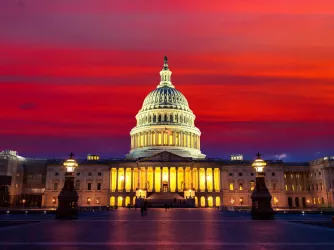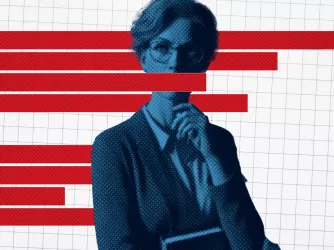Table of Contents
The State of Free Speech on Campus: Brown University
Throughout the spring semester, FIRE is drawing special attention to the state of free speech at America's top 25 national universities (as ranked by U.S. News & World Report). Today we review policies at Brown University, which FIRE has given a red-light rating for maintaining a policy that clearly and substantially restricts free expression on campus.
Brown is a private university, but it promises students and faculty the right to free speech, both inside and outside of the classroom. Brown's policies provide that:
Brown University, mindful of its historic commitment to scholarship and to the free exchange of ideas, affirms that faculty and students alike shall enjoy full freedom in their teaching, learning, and research. Brown University also affirms that faculty and students shall have freedom of religious belief, of speech, of press, of association and assembly, of political activity inside and outside the University, the right to petition authorities, public and university, to invite speakers of their choice to the campus and that students and faculty as such should not be required to take any oath not required of other citizens. The time, place and manner of exercising these rights on campus shall be subject to reasonable regulation only to prevent interference with the normal functions of the University. (Emphasis added.)
Students and faculty reading this statement would almost certainly believe they were entitled to the same freedoms at Brown to which they would be entitled at a public university in Rhode Island. However, Brown's policies explicitly prohibit speech that, at a public university, would be protected by the First Amendment.
The biggest concern regarding free speech at Brown is the university's wildly inconsistent statements about what constitutes sexual harassment. In the sexual harassment policy published by the university's Office of Equal Employment Opportunity and Affirmative Action, the university defines sexual harassment as conduct that "has the purpose or effect of substantially interfering with an individual's welfare, academic or work performance, or creates an intimidating, hostile, offensive education or work environment." This definition is not without significant problems (it contains no requirement of severity or pervasiveness), but it is also fairly close to the language of the Equal Employment Opportunity Commission. While it wouldn't pass constitutional muster at a public university in New Jersey, Delaware, or Pennsylvania following the United States Court of Appeals for the Third Circuit's ruling in DeJohn v. Temple University, 537 F.3d 301 (3rd Cir. 2008) this past August, Brown's policy is also far less troublesome than other statements about sexual harassment that can be found elsewhere in Brown's publications.
The first serious problem is with the possible examples of sexual harassment listed in the very same policy:
Examples of the kinds of conduct that may constitute sexual harassment include, but are not limited to: Unwelcome sexual propositions, invitations, solicitations, and flirtations. ... Unwelcome verbal expressions of a sexual nature, including graphic sexual commentaries about a person's body, dress, appearance, or sexual activities; the unwelcome use of sexually degrading language, jokes or innuendoes; unwelcome suggestive or insulting sounds or whistles; obscene phone calls. Sexually suggestive objects, pictures, videotapes, audio recordings, computer communications, or literature placed in the work or study area, that may embarrass or offend individuals.
This list is highly misleading. While it is theoretically possible that these behaviors could constitute sexual harassment if they rise to the necessary level of severity and pervasiveness, most offensive "jokes or innuendoes," "insulting sounds," and visual displays "that may embarrass or offend" are not sexual harassment and, in fact, are protected speech. As courts have held in cases too numerous to mention, the fact that expression is offensive does not strip it of constitutional protection. To actually constitute harassment, speech must go far beyond causing offense; it must genuinely interfere with a reasonable person's ability to participate in the educational process.
This list of examples, however, is not even Brown's worst misstatement with regard to sexual harassment. Brown's Health Services Department maintains a "Health Education" website with information on sexual harassment aimed at students. That website provides another list of sexual harassment examples, but unlike the earlier policy, it does not merely state that the examples may constitute sexual harassment—it outright states that they are sexual harassment, which would lead students to believe those types of speech are banned entirely.
Examples of sexual harassment include: ... Suggestive jokes of a sexual nature ... Sexual pictures or displays ... Obscene gestures or sounds ... Written notes of a sexual nature.
So if a student gets his or her information about sexual harassment from the Health Education website—which is specifically a part of the "Student Services" section of Brown's website—he or she will believe that all "suggestive jokes of a sexual nature" and "sexual pictures or displays" constitute prohibited harassment at Brown. This is wholly unacceptable.
Also problematic is the computing policy contained in Brown's statement of Student Rights and Responsibilities. That policy directs students to "[u]se appropriate standards of civility when using computing systems to communicate with other individuals." It is inappropriate for a university that claims to value free speech to require all expression to be "civil." As a federal judge wrote in striking down the California State University system's civility policy:
[A] regulation that mandates civility easily could be understood as permitting only those forms of interaction that produce as little friction as possible, forms that are thoroughly lubricated by restraint, moderation, respect, social convention, and reason. The First Amendment difficulty with this kind of mandate should be obvious: the requirement "to be civil to one another" ... reasonably can be understood as prohibiting the kind of communication that it is necessary to use to convey the full emotional power with which a speaker embraces her ideas or the intensity and richness of the feelings that attach her to her cause. Similarly, mandating civility could deprive speakers of the tools they most need to connect emotionally with their audience, to move their audience to share their passion.
College Republicans at San Francisco State University v. Reed, 523 F. Supp. 2d 1005 (N.D. Cal. 2007).
Brown's computing policy also prohibits "spamming," which it defines broadly as "[a]ny unwanted or unsolicited email, usually propaganda for scams, web sites, goods, and services." The fact that the university, by the plain language of this policy, could choose to enforce it against "any unwanted or unsoliticed email" gives the university a tremendous amount of discretion to restrict speech. FIRE has recently seen—in the case of Michigan State University—that a broadly worded spam policy can be abused to silence speech critical of the university administration (or controversial speech of any kind). Therefore, we recommend that anti-spam policies be carefully drafted so as not to allow for an abuse of discretion like the one that happened at MSU.
Stay tuned next week for information on the state of free speech at Johns Hopkins University. (A preview: It's not good. Johns Hopkins is one of only five schools on FIRE's Red Alert List, reserved for the worst of the worst when it comes to protecting student rights on campus.)
Recent Articles
FIRE’s award-winning Newsdesk covers the free speech news you need to stay informed.

VICTORY: FIRE lawsuit leads California to halt law penalizing reporters, advocates, and victims who discuss publicly known information about sealed arrest records

O holy fight: New Hampshire Satanic Temple statue threatened by more than vandals

FIRE to Congress: More work needed to protect free speech on college campuses
